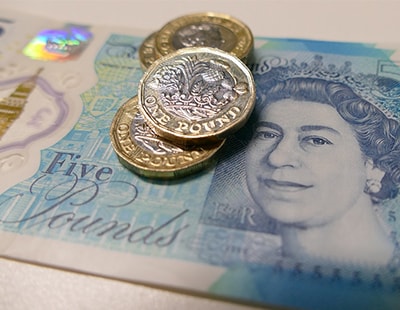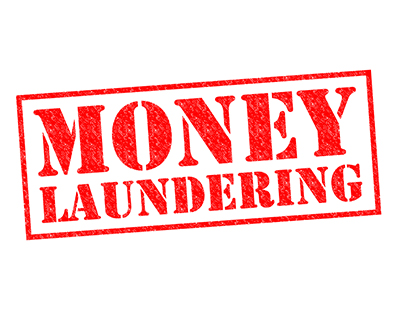All firms based offshore that own UK property were required to declare their ultimate beneficial owners on the new register by February 6, however only 19,510 out of a total 32,440 have actually done so, and the Government has pledged to do everything it can to punish those who are not meeting their obligations.
Business Minister Lord Callanan said: “There is nowhere for the criminals and corrupt elites to hide. We will be using all the tools at our disposal, including fines and restrictions, to crack down on foreign companies who have not complied.
Louise Smyth, Chief Executive Officer of Companies House added: “We cannot be clearer in our message to these entities; if you ignored warnings and fail to register before the deadline, you will face consequences. This includes not only the prospect of restrictions on your land or property but also a possible fine, prison sentence, or both.”
Global money
Owning UK property through a foreign entity is not illegal, but if the ultimate beneficial owner (UBO) of that company is able to remain anonymous, it hugely heightens the risk of money laundering, as Martin Cheek, Managing Director at anti-money laundering experts SmartSearch explains:
“The UK property market has been at the centre of global money laundering and tax avoidance for many years now, and that is because foreign companies and entities can legally buy UK property, allowing the UBO to hide their identity – and activities.
“An individual who has gained their wealth through illicit means can set up an anonymous shell company in an offshore tax haven, transfer their dirty money into that shell company, and then buy a UK property through that company. They then have a property in the UK which they can live in, rent out - and charge rent, which legitimatises the cash - or sell it on to a UK citizen who, by paying clean money for the property, has then inadvertently helped launder the original dirty cash.”
In 2021 the Pandora Papers revealed that at least £4bn worth of UK property has been bought anonymously, meaning that billions of pounds worth of UK real estate has potentially been bought by criminals to clean their dirty cash.
It was in response to this and the ongoing issues with corruption within the UK property market, that the UK government introduced the new UBO register, to force foreign entities to declare their corporate ownership structures, and make property ownership in the UK much more transparent.
However, given that around 13,000 businesses have failed to declare their beneficial owners on the new register, there is potentially still billions of pounds of dirty money going through the UK’s property market.
Martin Cheek said “The reason the new register is such an important tool in the fight against money laundering is that it provides regulated businesses with the information they need to be able to identify the ultimate beneficial owner of a UK property. This then enables them to run their due diligence and screening checks to ascertain the risk, if any, that business and UBO poses to their business.
No qualms
“But 40% of foreign firms have failed to declare their beneficial owners, meaning there is a strong possibility that many are hiding the dealings of corrupt individuals, which means estate agents and other property firms in the UK need to be more stringent than ever when running their own checks.”
Martin Cheek says that, for those working in the property purchase chain, having a system in place that can identify the UBOs of foreign entities - especially those that have failed to register with Companies House – is absolutely key, both in protecting their own business and preventing money laundering.
“While it is legal to own property through an offshore firm, you do have to provide evidence of who is actually providing the funds. Legitimate businesses should have no qualms in providing that information - the only reasons why they would want to remain anonymous is if, they are doing something immoral, or worse, something illegal.
“Our electronic verification system can identify the ultimate beneficial owners of any foreign entity – whether they have registered with Companies House or not – giving estate agents a clear picture of exactly who is really behind the business.”
At the click of a button, users can quickly and efficiently understand the ownership structure of a company and identify any individual with 10% or more of the share value. The system then runs an individual check on that UBO, to verify their identity, screen them against global sanctions and PEP lists and adverse media. This will confirm if they are who they say they are and also identify if they or any of their associates, are involved in illicit activities, or have been in the past.
Martin Cheek, Managing Director at SmartSearch added: “The launch of the UBO register was a huge step forward, but it relies on self-declaration by foreign firms. While many of the firms who have failed to voluntarily offer this information have perhaps not got round to it, or are unaware of their obligations, it is likely a fair number are avoiding declaration because they do not want to expose what is really going on.
“We therefore fully welcome the Government’s hard stance on those that have failed to comply, and hope that the threat of fines and prosecution will urge those who have nothing to hide to register, and result in fines and sanctions against those who have been abusing the system for years – either to avoid paying tax, to clean their dirty cash, or both. But in the meantime, we are here to help agents who want to be sure they know exactly who their customers are.”
To find out more about how SmartSearch can help you with identifying Ultimate Beneficial owners, visit www.smartsearch.com








%20by%20Martin%20Cheek.jpg)
.jpg)















Join the conversation
Jump to latest comment and add your reply
Please login to comment